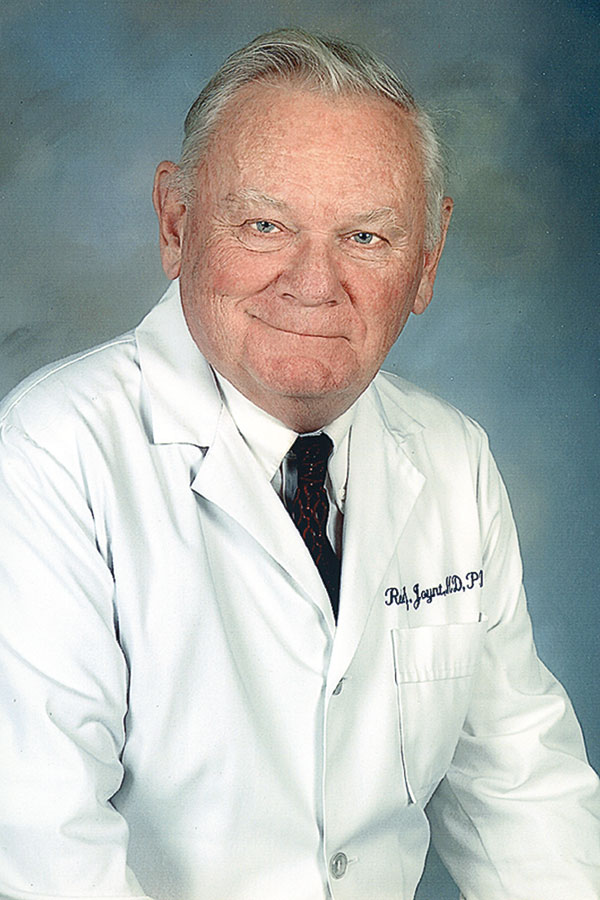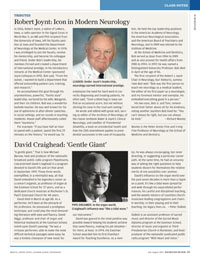Tribute
 LEADER: Under Joynt’s leadership, neurology earned international prestige. (Photo: Medical Center)
LEADER: Under Joynt’s leadership, neurology earned international prestige. (Photo: Medical Center)In 1966, Robert Joynt, a native of LeMars, Iowa, a radio operator in the Signal Corps in World War II, an MD and PhD recipient from the University of Iowa, left his faculty position at Iowa and founded the Department of Neurology at the Medical Center. In 1974, I was privileged to join the faculty, receive his mentorship, and become his colleague and friend. Under Bob’s leadership, his mentees thrived and created a department of international prestige. In his introductory remarks at the Medical Center–sponsored Joynt Colloquia in 1992, Bob said, “From the outset, I wanted to build a department that offered outstanding patient care, training, and research.”
He accomplished this goal through his unpretentious, powerful, “family style” leadership, nurtured by his wife, Margaret, and their six children. Bob was a wonderful bedside teacher. He was well known for his use of aphorisms in after-dinner speeches, in social settings, and on rounds in teaching residents. House staff affectionately called them “Joyntisms.”
For example: “If you have half an hour to spend with a patient, spend the first 29 minutes on the history,” he would say. To emphasize the need for hard work in correctly diagnosing and treating patients, he often said, “Even a blind hog in Iowa can find an occasional acorn, but not without sticking his nose in the mud and rooting.”
He wrote and edited with great skill, serving as editor of the Archives of Neurology, of the classic textbook Baker & Joynt’s Clinical Neurology, and coeditor of Presidential Disability, a book on presidential health and how the 25th amendment applies to presidential succession in the case of incapacitation. He held the top leadership positions in the American Academy of Neurology, the American Neurological Association, and the American Board of Psychiatry and Neurology, and in 1989 was elected to the Institute of Medicine.
At the School of Medicine and Dentistry, Bob served as dean from 1984 to 1989 and as vice provost for health affairs from 1985 to 1994. In 1997, he was named a Distinguished University Professor. Bob died in April at the age of 86.
The first recipient of the Robert J. Joynt Chair in Neurology, Karl Kieburtz, summarizes Bob well. “Bob was the first person to teach me neurology as a medical student, the editor of my first paper as a neurologist, and my foremost mentor and exemplar. He embodied everything good in a person.”
His two sons, Bob Jr. and Tom, remembered their father above all for his kindness, noting another Joyntism Bob lived by: “You can’t always be right, but you can always be kind.”
—Richard Moxley
Moxley is the Helen Aresty Fine and Irving Fine Professor of Neurology at the School of Medicine and Dentistry.

